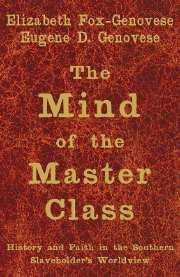Book contents
- Frontmatter
- Contents
- Preface
- List of Abbreviations
- Prologue
- PART ONE CRADLED IN THE STORMS OF REVOLUTION
- PART TWO THE INESCAPABLE PAST
- PART THREE ANCIENT LEGACIES, MEDIEVAL SENSIBILITY, MODERN MEN
- PART FOUR A CHRISTIAN PEOPLE DEFEND THE FAITH
- PART FIVE AT THE RUBICON
- Epilogue: King Solomon's Dilemma
- Supplementary References
- Index
Preface
Published online by Cambridge University Press: 05 June 2012
- Frontmatter
- Contents
- Preface
- List of Abbreviations
- Prologue
- PART ONE CRADLED IN THE STORMS OF REVOLUTION
- PART TWO THE INESCAPABLE PAST
- PART THREE ANCIENT LEGACIES, MEDIEVAL SENSIBILITY, MODERN MEN
- PART FOUR A CHRISTIAN PEOPLE DEFEND THE FAITH
- PART FIVE AT THE RUBICON
- Epilogue: King Solomon's Dilemma
- Supplementary References
- Index
Summary
In writing of what Yankees call “the Civil War,” what red-blooded Southrons call “the War of Northern Aggression,” and what we prefer to call “the War for Southern Independence,” we here refer simply to “the War.” For Southerners – liberal and conservative, black and white – and for no few Northerners as well, there was, after all, only one war that really mattered. In a few cases, however, we have used “War for Southern Independence” to avoid ambiguity.
Many articles, pamphlets, and books of the period were published anonymously. Where we have identified the author, the name appears in brackets; a question mark indicates that we consider the author in brackets probable. All words in italics were emphasized in the original sources quoted. We use “sic” only in rare cases in which it seems indispensable. Thomas Jefferson, John C. Calhoun, and numerous other Southerners and Northerners often misspelled words, omitted apostrophes in possessive nouns, and lapsed from the King's (Queen's) English. We have retained the original punctuation – for example, dashes for commas – except in a few cases. Nineteenth-century Americans used commas freely, and we have dropped some to ensure clarity of meaning.
A few technical terms are defined as follows. Arminianism: Man's free will and the resistibility of God's grace. Arianism: An ancient doctrine that affirmed the second-order deity of Jesus, attributing to Jesus the Son a nature different from (and inferior to) that of the Father. Socinianism (sixteenth century): Jesus a human being with a divine mission – a moral teacher.
- Type
- Chapter
- Information
- The Mind of the Master ClassHistory and Faith in the Southern Slaveholders' Worldview, pp. ix - xiPublisher: Cambridge University PressPrint publication year: 2005



